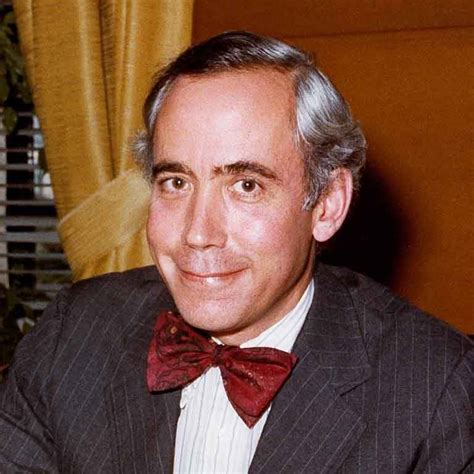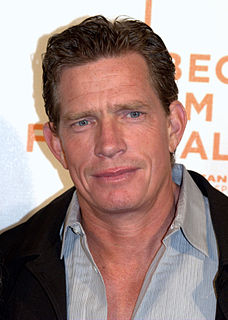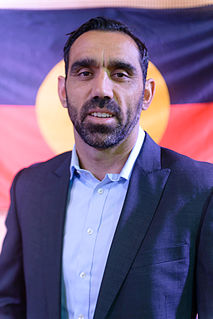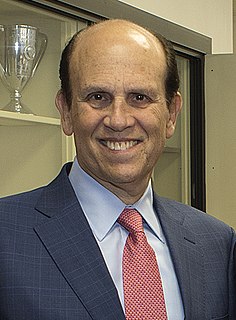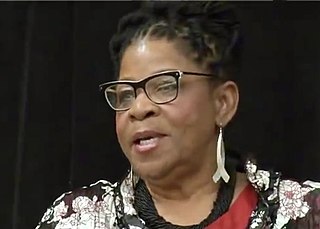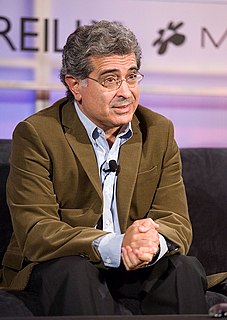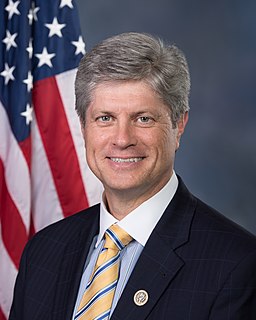A Quote by Eli Broad
To me, money is a means to do good. I reached a point in my life where I had enjoyed tremendous business success that afforded my family everything we could possibly want. My wife and I then decided that we could use our wealth to make a difference. So we created the Broad Foundations to do four things: to improve urban public education, to support innovative scientific and medical research, to foster art appreciation for audiences worldwide and to support civic initiatives in Los Angeles.
Quote Topics
Afforded
Angeles
Appreciation
Art
Art Appreciation
Audiences
Broad
Business
Business Success
Civic
Could
Created
Decided
Difference
Education
Enjoyed
Everything
Family
Foster
Foundations
Four
Good
Had
Improve
Initiatives
Innovative
Life
Los
Los Angeles
Make
Make A Difference
Me
Means
Medical
Medical Research
Money
My Family
My Life
My Wife
Our
Point
Possibly
Public
Public Education
Reached
Research
Scientific
Success
Support
Then
Things
Tremendous
Urban
Use
Want
Wealth
Wife
Worldwide
Related Quotes
Nevertheless, the Tenth Commandment-'Thou shalt not covet'-recognizes that making money and owning things could become selfish activities. But it is not the creation of wealth that is wrong, but love of money for its own sake. The spiritual dimension comes in deciding what one does with the wealth. How could we respond to the many calls for help, or invest for the future, or support the wonderful artists or craftsmen whose work also glorifies God, unless we had first worked hard and used our talents to create the necessary wealth?
Education is a very empowering experience, so many people who went to school also managed to improve their quality of life much faster because they could get a job, they could get money. Once people see that you improve your life if you are educated, then education becomes a valuable tool and people want it.
When I landed in L.A. in early '89, William Morris decided to take me on to see if I could get any jobs. I was cast in a TV movie called Protected Surf, and made $30,000 in four weeks, and I decided I needed to take acting seriously, because I had never made that much money in a year, much less four weeks. That's when I decided I thought I could make a career out of it.
The point of public relations slogans like "Support Our Troops" is that they don't mean anything ... that's the whole point of good propaganda. You want to create a slogan that nobody is going to be against and I suppose everybody will be for, because nobody knows what it means, because it doesn't mean anything. But its crucial value is that it diverts your attention from a question that does mean something, do you support our policy? And that's the one you're not allowed to talk about.
In the four decades of philanthropy that have paralleled my business career, I've found that the same principles apply whether you're providing access to capital to grow a business, creating a new paradigm for medical research, or pioneering innovative approaches to education: Empower the most talented people in each field and encourage them to pursue their passions.
I knew hundreds and hundreds of women like me, who had traveled in and out of prison in a revolving door. They needed support and help just like I had received. And it could make a difference, just like it had made a difference in my life. I wanted to see them come back to the community and have a chance at a different life, too.
You could say I'd rewritten the same novel three times and I thought I had to move on. The success of the book, and then the movie, had by then also created a commercial expectation and I remember touring America and seeing people in the audiences who I thought might not want to read the books I wanted to write next. My constituency had become broader, but more mysterious to me.



